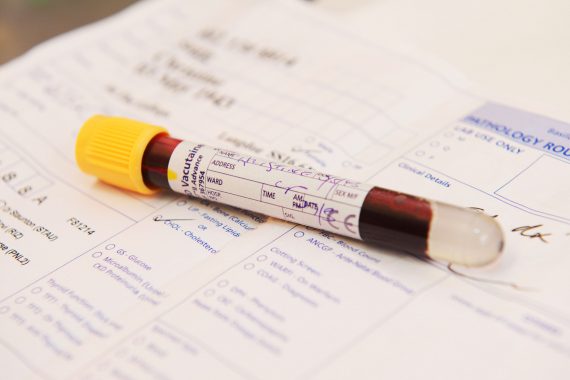A raised platelet count may be an early warning sign for cancer, suggests a new study in the British Journal of General Practice.
The study, which was led by researchers at Exeter University’s Medical School, looked at rates of cancer in 40,000 people with thrombocytosis.
Approximately 2% of people aged 40 and above have thrombocytosis (platelet count > 400 x 109 L), which is routinely checked as part of a full blood count. In this study, researchers compared rates of cancer between patients with thrombocytosis and those with a normal number of platelets using medical records and cancer registry data.
They found that thrombocytosis was a significant marker of cancer risk. Over 11% of men and over 6% of women with thrombocytosis were diagnosed with cancer in the following year. Risk of cancer increased further when an additional high platelet count was measured within six months of the first.
These predictive values are higher than those for other diagnostic measures (for example, the predictive value of a breast lump in a female aged 50 – 59 is 8.5%), and far above the NICE threshold for suspected cancer investigation of 3%.
Cancers most commonly associated with thrombocytosis were lung and colorectal. Importantly, a third of patients with thrombocytosis who went on to develop cancer showed no other symptoms of a tumour, which suggests that platelet count could be a very useful diagnostic marker.
Based on their findings, the authors suggest that cancer should be considered when thrombocytosis is discovered, even if the patient does not show other symptoms. They say that routine investigations could accelerate diagnoses of cancer by around 2 months and could help more than 5,000 people every year.
Dr Sarah Bailey, lead author of the paper, commented: ‘We know that early diagnosis is absolutely key in whether people survive cancer. Our research suggests that substantial numbers of people could have their cancer diagnosed up to three months earlier if thrombocytosis prompted investigation for cancer.’
Although thrombocytosis has been linked with certain types of cancer, past analysis has been limited and this is the first study to estimate the overall risk of cancer in patients with high platelet count.
It was important to note that this study does not show any causative link between high platelet count and cancer, is based on data only from patients over 40, and requires further study in a primary care context, the researchers added.
RCGP chair Professor Helen Stokes-Lampard said: ‘This research finding is interesting and builds on existing data about high platelet counts. Platelet counts are measured as part of a “full blood count” test, which is a routinely available blood test for GPs.
‘But it remains important that GPs have access to other appropriate diagnostic tests in the community – including emerging tests and imaging techniques – as this would be of real benefit for our patients, and currently we have one of the lowest access rates to diagnostic tests in Europe.’

















